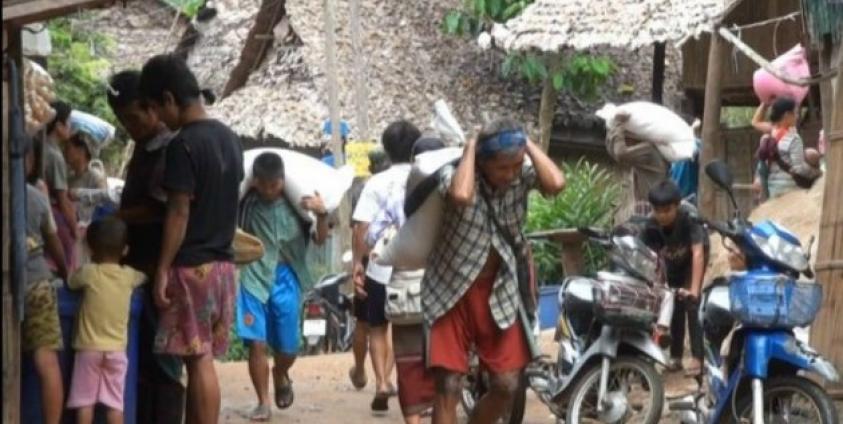Refugee camp officials on the Thai Burma border are concerned that a funding shortfall may result in further ration cuts.
The officials said that they are now holding discussions with donor organizations to try to manage the basic food rations provided to the refugees. The camp officials pointed out that a funding shortfall for the year may cause further reductions in refugee provisions if the shortage cannot be reconciled.
Saw Honest, camp leader of Mae La refugee camp in Tak Province explained to Karen News that the monthly food rations provided by The Border Consortium (TBC) – 8kgs of rice for adult (12kg for children), half a bag of charcoal, three-quarters of a litre of cooking oil and half a kg of fish-paste – could see further reductions in the coming months.
The Border Consortium (TBC) is a coalition of INGO’s that has administered aid to the camps for over two decades. TBC is responsible for providing food rations, shelter and other humanitarian assistance to all the nine refugee camps along the Thai-Burma border including Mae La, Umpheim, Nu Po, Mae Rama Luang, Mae La Oon, Tham Hin, Ban Don Yang and the Karenni camp no. 1 and 2 with a total population of more than 140,000 refugees.
Speaking to Karen News, Saw Honest said: “To be able to manage the food rations within the shortfall of funding for the year, TBC told us that the rations might have to be reduced depending on the situation. There has been not been any decision made on the reduction, but it may possibly be implemented next month.”
Saw Honest said that TBC has not issued any official information to the refugees’ community about further reductions to their food rations.
Saw George, vice chairperson of the Karen Refugee Committee spoke to Karen News about the ration reductions.
He said: “This is to balance out the food rations due to the shortfall of the funding in order for us to continue running for the rest of the year. When funding is again raised, there will be no changes.”
Saw Wah Htee, camp leader at Umpheim Mai refugee camp spoke to Karen News about the issue.
He said: “Donors do not only give funding to refugees on the Thai-Burma border. They also give funding to other refugees all over the world, so our refugee community has to understand that – we have to appreciate that. Those organizations who provide assistance to us are also trying hard to find funding.”
The political changes in Burma since 2010 have meant a withdrawal of donor organizations working on refugee issues as well as a reduction in humanitarian aid for the Thai-Burma border. The donors started to withdraw after a new quasi-civilian government came into power in Burma in 2010 and after the ethnic armed groups signed a ceasefire agreement with the government in 2012.








